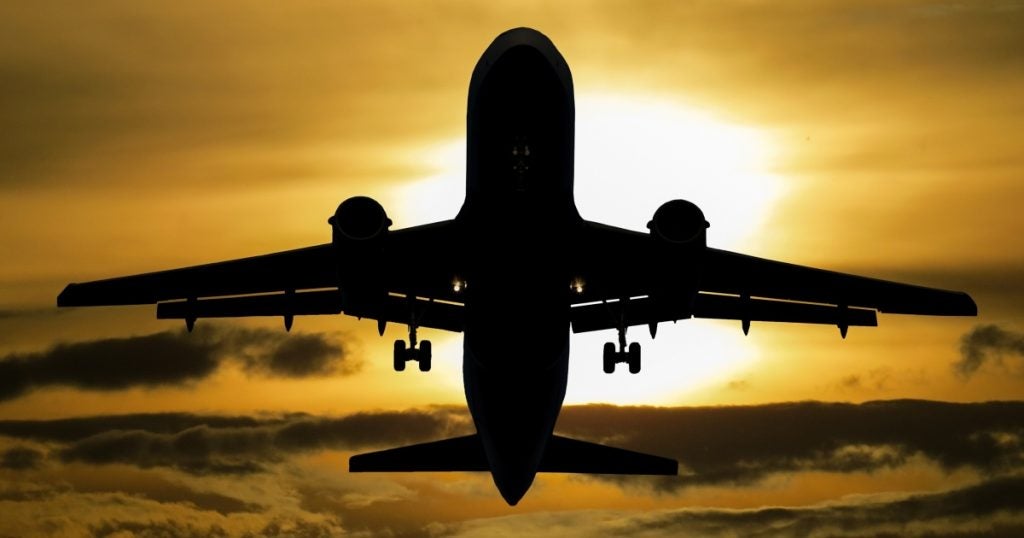CORSIA: Industry-sought rule change threatens aviation climate program

The coronavirus pandemic has created a global health and economic crisis that has affected families all over the world and nearly all industries, with aviation taking a particularly steep toll.
Airlines may feel under pressure to save money at any cost, but hastily rewriting the fundamental structure of the industry’s flagship market-based program to address airline carbon emissions would be penny-wise and future-foolish.
In a new analysis by Environmental Defense Fund, we look at the implications of a rule rewrite sought by the International Air Transport Association (IATA) to the Carbon Offsetting and Reduction Scheme for International Aviation, or CORSIA.
The UN’s International Civil Aviation Organization (ICAO) established CORSIA to implement international aviation’s commitment to “carbon neutral growth from 2020.” CORSIA caps the carbon emissions of international flights at the average of 2019-2020 emissions, and requires airlines to use alternative fuels or offset any emissions above that baseline. Citing the COVID crisis, IATA asked ICAO’s 36-member governing Council, by June 2020, to change the baseline to 2019 emissions only.
To understand the implications of IATA’s re-write, EDF modeled the proposed change under five post COVID-19 emission scenarios. The analysis finds that in most scenarios, the rule rewrite would effectively postpone the start of the program for three to five years.
In most scenarios, the new rules would postpone CORSIA’s start for three to five years
Ad hoc rule rewrite could damage investor and public confidence in the program
Predictable processes are crucial to the success of market-based measures like CORSIA. Consistency – applying fixed rules objectively and automatically, and making rule changes only in accordance with established processes for making such changes – is fundamental. If investors believe that governments will make ad hoc rule changes that strand their investments, they won’t make those investments.
Re-writing CORSIA’s rules would not only give airlines a free pass to pollute for the next half-decade, it would undermine investor confidence in airlines’ climate commitments at a time when regaining investor confidence is crucial to the sector’s survival. That’s why actors knowledgeable about carbon markets are urging ICAO not to re-write the rules in haste.
Use it, don’t lose it
CORSIA already includes a little-known flexibility mechanism that would lower airlines’ offset obligations in its first three years.
Using this provision would give airlines essentially the same amount of offset responsibilities in the program’s “pilot phase” as if the pandemic had never happened. ICAO’s Council has already approved enough carbon credits to assure sufficient supply to meet that demand in CORSIA’s initial years (2021-2023), per an Ecosystem Marketplace analysis. And the Council is considering a new round of offset program applications that could expand the approved supply in 2021.
Act for the long-term survival of the industry in an era of climate change
Post-pilot phase, airlines’ carbon offset obligations under CORSIA will depend on whether, when and how air traffic recovers from the coronavirus crisis. That recovery will unfold at a time when cutting aviation’s climate impact will be crucial to its long-term survival. CORSIA gives airlines until January 2025 to meet their pilot phase offset obligations – providing ample time for the 190+ countries of ICAO’s General Assembly, which wrote CORSIA’s rules, to make considered decisions when they conducts their regular triennial review of CORSIA in 2022.
By contrast, a hurried decision to rewrite CORSIA’s fundamental rules would push the effective date of airlines’ carbon offset obligation to 2028 or later – a gap of 30 years from when governments first called on ICAO to act on climate. Airlines are facing an unprecedented near-term crisis with COVID-19, but the climate crisis will still be here in the post-COVID era. To win back the public’s – and investors’ – confidence, they need to keep the commitments they’ve already made.












